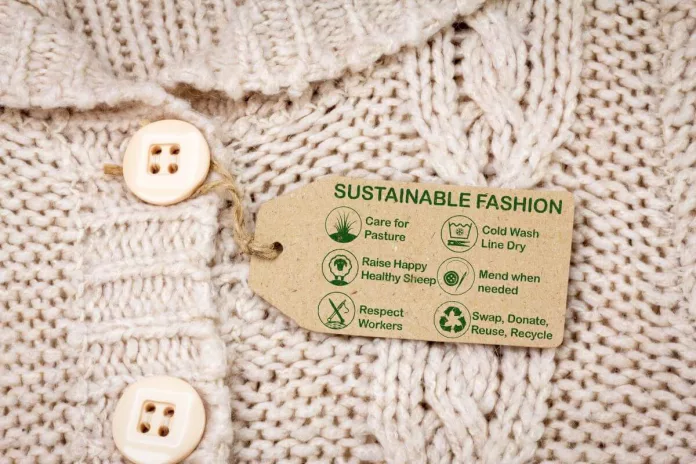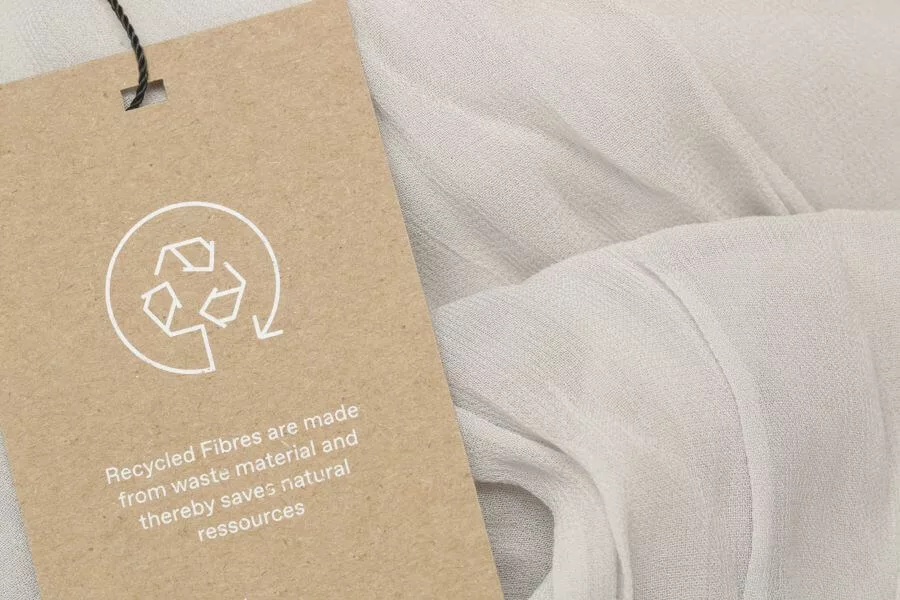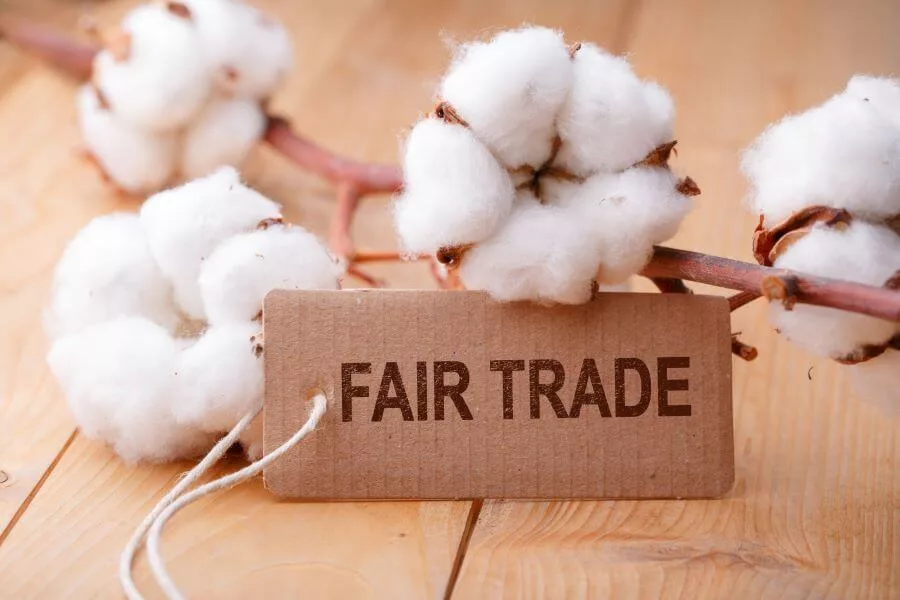
First Published: 13th September 2023, written by Olivia Doonan | Last Updated on 13th September 2023 | Reviewed and Edited by Chloe Safilo
In an age where environmental concerns and ethical considerations are at the forefront of global conversations, the question of whether consumers genuinely care about buying ethically sustainable products has become increasingly relevant. Many businesses are pivoting towards sustainability, claiming to be environmentally conscious and socially responsible. But are consumers truly prioritizing these factors when making purchasing decisions?
Let’s delve into this intriguing question to uncover the motivations behind consumer choices and the evolving landscape of ethical consumption.

The Rise of Conscious Consumerism
Consumer behaviour is undergoing a significant transformation, driven by a growing awareness of our choices’ environmental and social impact. Ethical consumption, often referred to as conscious consumerism, is on the rise. Consumers are now seeking products and brands that align with their values and ethical standards. This shift has given rise to a demand for products that are not only high-quality and affordable but also sustainable and socially responsible.
One of the key drivers behind this shift is increased access to information. With the internet and social media platforms providing a constant stream of news and information, consumers are more informed than ever before. They can easily access details about a company’s environmental practices, labour conditions, and supply chain transparency.
This transparency empowers consumers to make choices that reflect their ethical concerns. As a result, businesses are recognizing the need to adapt to this changing landscape or risk losing market share.
The Power of Branding and Storytelling
Consumers today are not merely interested in products; they are invested in the stories behind those products. Brands that can effectively communicate their commitment to ethical and sustainable practices tend to resonate with consumers on a deeper level. Ethical branding goes beyond marketing; it involves showcasing a brand’s values, missions, and actions through transparent communication.
Consumers are increasingly looking for authenticity in the brands they support. They want to know where and how products are made, the working conditions of the people involved, and the environmental impact of production processes. Businesses that can provide these details, backed by concrete actions, tend to foster trust and loyalty among consumers. In essence, it’s not just about selling a product; it’s about selling a vision of a better, more sustainable world.

Balancing Ethical Values with Economic Realities
While the trend toward ethical consumption is undeniable, it’s crucial to recognize that consumers often face economic constraints. Ethically sustainable products can sometimes come with a higher price tag due to the costs associated with responsible sourcing, production, and distribution. As a result, consumers must navigate the delicate balance between their ethical values and their budgets.
To bridge this gap, some businesses are taking innovative approaches, such as offering more affordable, sustainable alternatives or providing clear information about the long-term cost-effectiveness of ethically sustainable products. Additionally, government policies and incentives can play a role in making sustainable choices more accessible to a broader range of consumers.
The Role of Sustainable Composite Products
Sustainable composite products, such as decking, metal roofing sheets, and cladding, made from FSC-accredited materials, play a pivotal role in the ethical consumerism landscape. These products combine aesthetics with eco-friendliness, appealing to environmentally conscious consumers. Using sustainably sourced materials not only reduces the carbon footprint associated with production but also contributes to the preservation of vital ecosystems.
As consumers increasingly recognize the importance of sustainable construction materials, composite products like these gain traction in the market. In a world where the average person in the UK produced 413 kg of waste in 2021, these sustainable options offer a path towards reducing the environmental impact of construction and renovation projects while meeting the growing demand for ethically responsible choices. Furthermore, the durability and longevity of sustainable composite products ensure that they not only meet the immediate needs of consumers but also contribute to long-term environmental benefits by reducing the need for frequent replacements and repairs.
As awareness about the significance of sustainable living continues to rise, embracing such eco-conscious choices in construction materials becomes not just a trend but a fundamental step toward a greener and more responsible future for our planet.
The Influence of Millennials and Gen Z
A significant demographic shift is contributing to the rise of ethical consumerism: the preferences of Millennials and Generation Z. These younger generations are more likely to prioritize sustainability and social responsibility when making purchasing decisions. Research shows that Millennials and Gen Z consumers are willing to pay a premium for products that align with their values, even if it means spending more. This generational shift is reshaping industries, as businesses are compelled to adapt their practices to cater to these influential consumers.

The Role of Certification and Transparency
Certification programs and supply chain transparency have become instrumental in building trust between consumers and brands. Recognizable labels, such as Fair Trade, organic, and eco-friendly certifications, serve as indicators of a product’s ethical and sustainable attributes. Consumers often rely on these certifications to make informed choices, especially when buying ethical fashion brands.
Moreover, brands that provide detailed information about their supply chains, production processes, and sourcing origins demonstrate a commitment to transparency, further strengthening their credibility in the eyes of consumers.
In addition to fostering trust, certification, and transparency also incentivizes companies to adhere to higher ethical and environmental standards. The knowledge that their practices are being scrutinized encourages businesses to continually improve their sustainability efforts, ultimately driving positive change across industries. As consumers increasingly prioritize products and brands with transparent and certified practices, these initiatives play an indispensable role in shaping a more responsible and conscientious marketplace.
The Challenges and Opportunities for Small Businesses
While large corporations can more easily invest in sustainable practices and marketing efforts, small businesses face unique challenges and opportunities in the ethical consumerism landscape. On the one hand, smaller enterprises can pivot towards sustainability more quickly, often with greater agility than larger counterparts. They can build their brand from the ground up with ethics and sustainability at the core, appealing to consumers seeking alternatives to mainstream products.
However, they may also struggle with limited resources, making it challenging to compete on price and marketing reach. Collaborations and partnerships with other ethical businesses or local initiatives can help small enterprises overcome these hurdles, creating a supportive ecosystem of sustainable options in communities.
The rise of ethical consumerism is driven by a variety of factors, including generational shifts, branding strategies, certification programs, and supply chain transparency. As consumers increasingly prioritize sustainability and social responsibility, businesses must adapt to this changing landscape. Small companies can seize opportunities by embracing ethics and sustainability as core values, while established brands can foster trust through transparency and genuine commitment.
As we move forward, the influence of ethical consumerism on our markets and industries is likely to continue growing, impacting how products are made, marketed, and purchased around the world.

















































